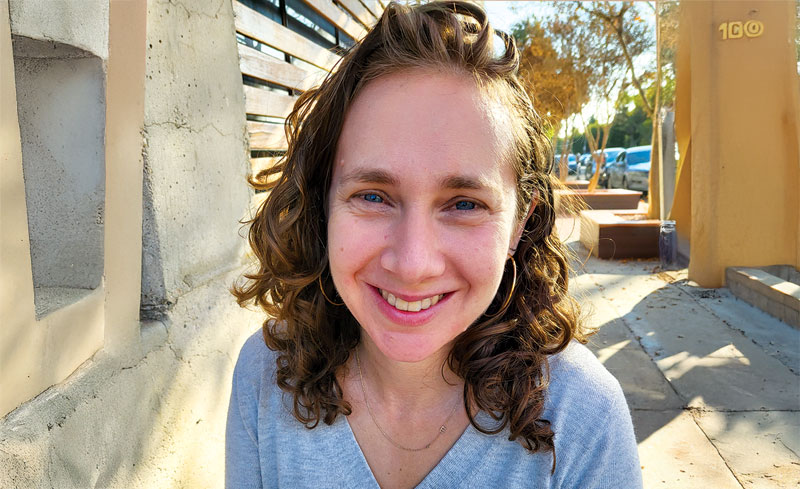On Sept. 10, the day Secretary of State Madeleine Albright arrived in Israel, the country became preoccupied with another event: the disappearance of Ya’acov Schwartz. Police said that they suspected the 63-year-old Schwartz, whose car was found abandoned near the Gaza Strip, had been kidnapped by Palestinian terrorists. Suspicions like these often turn out to be true, and with security forces on high alert for terror attacks, it was widely assumed that Schwartz had been snatched by Hamas. It became a major political incident. Albright, at Netanyahu’s urging, asked Yasser Arafat to do everything in his power to track down the kidnappers. Arafat, at Yossi Beilin’s urging, called Schwartz’s family to reassure them that he was on the case. Some 1,000 Shin Bet agents, soldiers, policemen and volunteers, aided by bloodhounds and helicopters, searched for Schwartz.
Two days later, he was found alive in an abandoned building in Ashkelon. He said that Arabs had kidnapped him, handcuffed him, tried to strangle him, stab him and set him on fire, but that his prayers had saved him. It was a “miracle,” he said.
At the beginning of this week, Schwartz admitted to investigators what most Israelis following the leaks in the case had come to believe: that he had staged the kidnapping himself. “I did it to unify the Israeli people,” he told police. It turned out that Schwartz was not just any ordinary citizen. Owner of a metals factory in Tel Aviv and a resident of the mainly Orthodox city of Bnei Brak, Schwartz was a radical right-wing activist who had a police file over a threatening letter he had once sent to left-wing Knesset Member Yossi Sarid.
According to acquaintances, Schwartz was sympathetic to Yigal Amir and believed that Amir had been framed by left-wing conspirators for the assassination of Rabin — a popular theory among Israel’s extremist right.
He was also a Holocaust survivor. About a month ago, he told a Chabad newspaper in the United States how he had hid in a shed of a Nazi concentration camp at the end of the war while members of his family were shot to death. The Holocaust has been the prism through which Schwartz has viewed Israel’s relations with the Arabs. About a year ago, he suffered a stroke and took to visiting the graves of Jewish sages. Schwartz had always been religious, but now he became more extreme, and this, together with the residual effects of the stroke, his traumatic memories from the Holocaust, and his ultra-nationalistic politics, took him over the edge. In his confession, Schwartz told police, “After the recent terror attacks, I had a vision that I had to shock and unify the people of Israel.” He would achieve this unity, he explained, by getting the people of Israel to search for him and worry over his fate. The vision came to him that afternoon, on Sept. 10, while visiting family graves in an Ashkelon cemetery.
After leaving the cemetery, Schwartz abandoned his car on a dirt road near Gaza, rifling the insides of the car to make it look like a kidnapping had taken place. Within hours, Schwartz’s wife notified police, and, since Albright was in town, an international incident was born. He hid out for the next two days in his Tel Aviv factory, then went back to Ashkelon, parked himself in an abandoned building, where a policewoman soon discovered him.
Immediately, gaping holes in Schwartz’s story appeared: Doctors found that he was in perfect condition — no dehydration, no bruises, no signs of strain, which was mighty unusual for a 63-year-old man who had been fighting off terrorists trying to kill him for two days. Also, Schwartz said that the kidnappers had tried to stab him in the heart and that a prayer book in his shirt pocket had stopped the blade. Yet police found no cut in the shirt pocket or in the prayer book. The burns to his clothing, police determined, had been caused by Schwartz himself. In addition, three people told police that they’d seen Schwartz after the time he’d “disappeared.”
After he confessed, Israeli authorities were understandably incensed. “This man took up days of our time, kept all the security forces busy on his behalf , and almost ruined Albright’s visit,” Netanyahu’s people said. Arafat’s people were gloating: “From the first day, we knew this was a provocation by the extreme Israeli right, aimed at sabotaging Albright’s visit.”
Schwartz denied that Albright’s arrival determined the timing of the stunt. Police were investigating whether any of Schwartz’s political cronies or family members were in on the ruse with him. Schwartz claims that he acted alone.
Justice officials were deciding whether to indict him, and whether to hold him liable for the estimated $300,000 cost of the search.
Schwartz’s attorney, Ya’acov Hatzroni, described him as “a man who loves Israel, who loves the Land of Israel, and who acted out of distress in an attempt to awaken the people of Israel, which found itself helpless against terror.” Schwartz’s act was “a completely passive gesture which harmed no one,” the lawyer argued.
Schwartz apologized for the embarrassment and worry he had caused his family and to those who had gone searching for him. But overall, he insisted, the operation had been a success: “I think I unified the people and achieved my goal.”
All rights reserved by author.






















 More news and opinions than at a Shabbat dinner, right in your inbox.
More news and opinions than at a Shabbat dinner, right in your inbox.